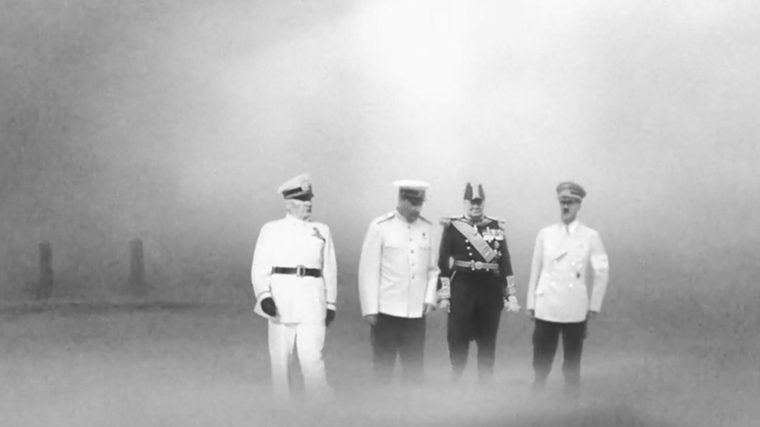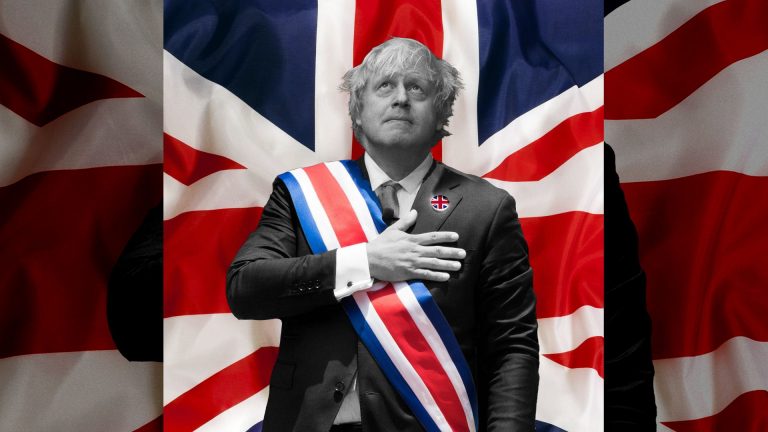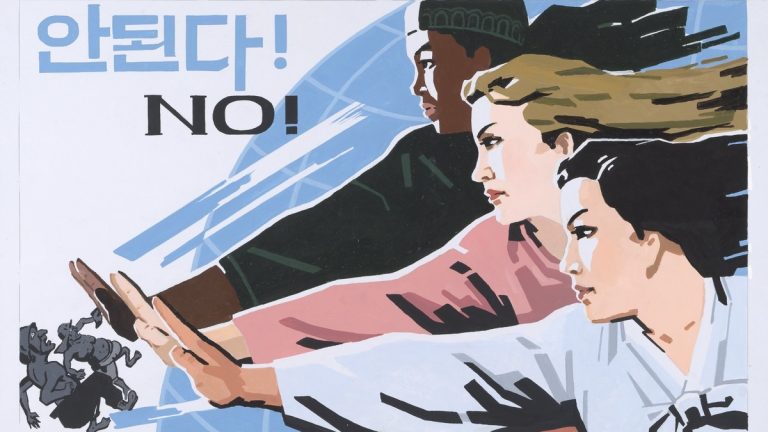There was no Aleksandr Sokurov film at Cannes this year. There may never be another. The Russian will turn 74 in June, but age is not the main reason why his half-century of film-making looks to have ended abruptly.
Because the film industry has always been, to one degree or another, an unholy-bedfellow three-way between art, entertainment and commercial profit, the prickly kind of self-directed artist who might’ve thrived as a poet or painter can run the risk of facing what amounts to erasure. Sokurov belongs to this tribe. What seems like being his final work, Fairytale (2022), may end up being the greatest 21st-century film most of us will never get to see.
Russia’s culture ministry banned the movie from being seen in Russia, and as a result Sokurov, in December 2023, officially announced that as a result, his “professional career… is over.” This would be a pity – Sokurov is a giant in the medium, a tireless experimenter whose films, as he’s aged, have become only riskier and stranger, and have nonetheless sometimes found audiences around the world.
That 50-year career-span covers a lot of history for a Russian: from before the Brezhnev Constitution of 1977 through the Russian-Afghan War, to Gorbachev and the dissolution of the USSR, and the subsequent decades of oligarchal turmoil and territorial war-waging, most of it presided over by Vladimir Putin. (Fairytale’s plight at home is like a flashback for Sokurov, all of whose films made before 1987 have two dates – completion and exhibition – since his entire 10-year output before perestroika was secreted away by the censors.)
History, the maddening fog and lingering scars of it, has always been one of Sokurov’s reigning obsessions: his most famous films are the miraculous one-shot historical dream-tour Russian Ark (2002), and his plague-of-power tetralogy, coming leftward at Hitler, Lenin and Hirohito in Moloch (1999), Taurus (2001) and The Sun (2005) respectively, and then rounding the project with a screwy, grotty retelling of Faust (2011). Fairytale picks up the thread, in a sense – a film that sees the lust for power as a lost game of ghosts.
It’s not quite like any other film, for purely textural reasons: crafted largely without cameras, the film deploys digital imaging to revivify old newsreel footage of Hitler, Mussolini, Stalin and Churchill, removing them from their historical contexts, and without ado plopping these four preening ogres down into a mist-shrouded purgatory, where they wander, grumble, bicker and bemoan their WWII decisions. You think you’re looking at a whole film built with AI deepfakes – such a thing awaits us soon enough – but Sokurov only needed to digitally restore the footage, get a team of crack compositors to seamlessly layer the imagery, and dub the old power-dealers with new voices and dialogue, in their own tongues.
Suggested Reading

The film that put Netanyahu in court
Undead echoes of political hubris, the four miserable spirits (plus a few moments with Napoleon, whose ghost is already fading away into forgetfulness) proliferate – an average scene could have three Stalins and three Mussolinis and so forth, all at different ages and in different uniforms, gabbing with each other. They saunter past the camera and each other, idly exploring their vast holding cell, an un-Christianised limbo mostly comprised of antique etchings of ancient ruins, caves, and tangled forests, all of it drenched with Sokurov’s trademarked murky haze. (The dust motes, the single added tear on Stalin’s cheek…)
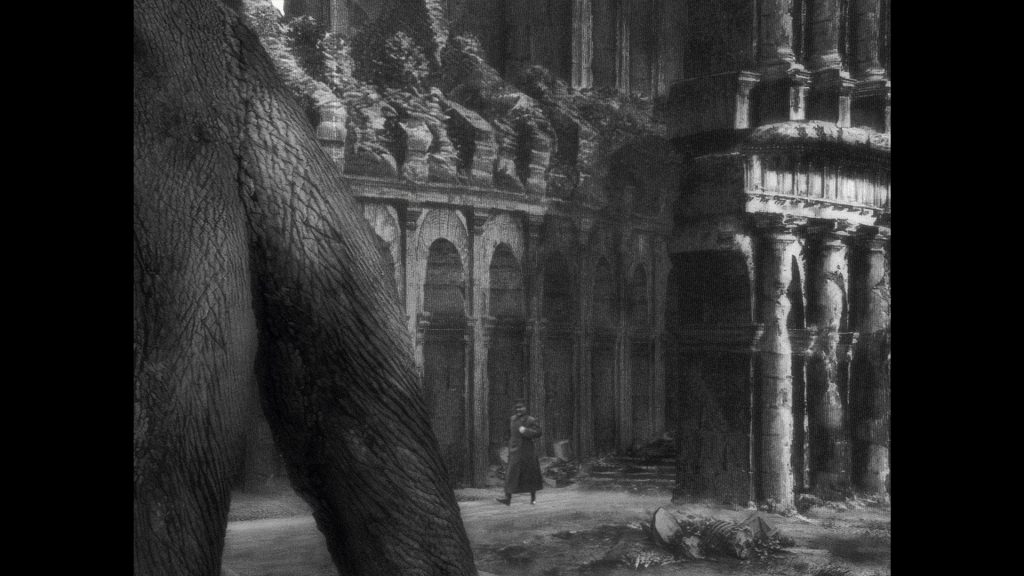
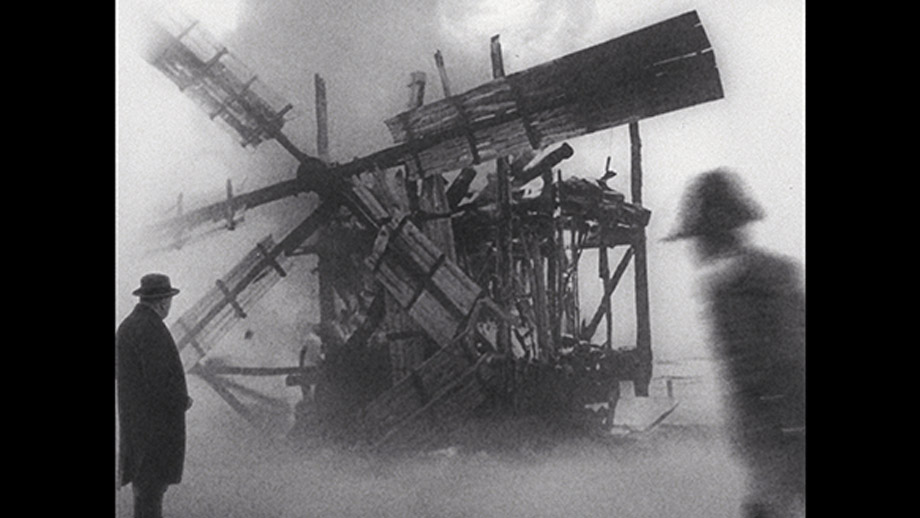
Very real dead soldiers litter the landscape, and you can see bombed-out cities in the distance. The dead men seem to want to talk to God, to negotiate their way out. But mostly they dismissively bounce off one another, like ghosts in a Beckett play, walking in large circles, tossing growled insults, and remarking a lot on how the others stink.
All movies are dreams, but watching Sokurov’s films can be like slowly waking from a dawn sleepwalk, moist with sweat and one step away from a cliff-edge. The primary experience of Fairytale does not coddle you with narrative progression – which shouldn’t come as a stunner for Sokurov fans, who might have with Stone (1992), Spiritual Voices (1995) and Russian Ark under their belts. It is, rather, an exercise in poisonous iconicity, mustering out of thin air a kind of metaphysical autopsy on 20th-century Euro-fallout, in the shape of a dream in which you want to run but can’t move your feet.
The less hardy viewers may squirm, but for anyone willing to consider films as objets d’art rather than merely snappy stories – they’re Sokurov’s tribe – every moment of Fairytale is a conjured miracle, graphically gorgeous and mysterious while simultaneously reconstituting these legendary men for real (not actors masquerading), and having us reconsider their vainglorious absurdity in sharp contrast to the historical destruction they wrought so long ago. That’s the magic of found footage at work: we step into the ruminative abyss between the original intentions of the piece of film (here, newsreels and propaganda) and the ironic, recontextualised purposes it is put to now. Each image means, but Sokurov has reclaimed them and resituated them, and set these charismatic megafauna scrambling like self-deluded rats in a maze without an exit.
In fact, the film is almost a valedictorian gesture for Sokurov, whose early short Sonata for Hitler (1979/89) was a howl of rage assembled entirely from archive footage. It’s a sign of the man’s aesthetic energy that as he has careened through various forms and genres – found footage experiments (ranging from ten minutes to 13 hours long) but also ironic adaptations of Flaubert and Shaw, free-associative documentaries, surreally visualised melodrama, brooding realism, twisted historical biopics, historical journalism, ambient dream videos, and so on – there’s no mistaking his stubborn spectral signature.
Sokurov’s scrupulous anti-narrative manner and demiurgic authority with visual mood shapes every sort of material into a unique mirage, crepuscular, elusive, cunningly accented by layered dissolves or reflected distortions. There’s almost too much of it.
Any cinema or museum organising a complete Sokurov retrospective would have its work cut out for it; imdb.com has never been able to quite keep up, and Sokurov’s own website declares itself as “an attempt” to corral his output. If Fairytale does turn out to be his epic career’s capstone, it would be both a fascinating farewell and a life’s work well completed. But it would also be tragic for us..
Fairytale is available to rent or buy on Amazon Prime Video

